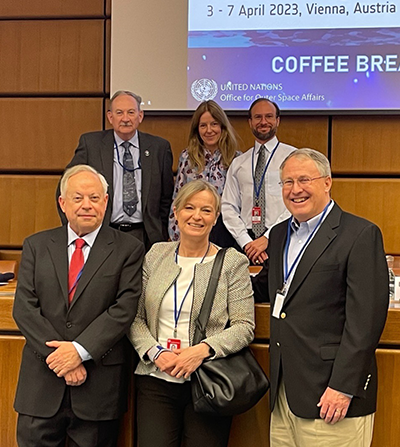
UN Invites Professor Beard to Speak on Planetary Defense
26 Apr 2023
Based on his recent scholarship, Professor Beard was invited by the United Nations Office of Outer Space Affairs (UNOOSA) to participate as a legal advisor on a panel of decision-makers at a conference at the Vienna International Center in April 2023. Professor Beard served on a panel examining legal obstacles related to the possible use of a nuclear weapon to divert an asteroid in order to prevent a catastrophic impact on earth. His work in this area includes a chapter entitled “Nuclear Nonproliferation and Planetary Defense” in the recently published book Legal Aspects of Planetary Defense, edited by Professor Irmgard Marboe.
The Planetary Defence Conference was organized by the International Academy of Astronautics in cooperation with UNOOSA, the Austrian Academy of Sciences, and the European Space Agency. The Conference focused on raising awareness and engage decision-makers on the topic of international collaboration in case of a potential asteroid impact hazard and associated policy and legal issues. The Vienna International Center in Vienna, Austria is one of the four UN Headquarters.
As in previous conferences, a hypothetical asteroid impact threat exercise was conducted, and NASA published details of the threat scenario for 2023 on its website, http://cneos.jpl.nasa.gov.
Experts at this conference also discussed NASA’s successful “DART” Mission in October 2022, in which the impact of a satellite successfully changed an asteroid’s motion in space. See https://www.nasa.gov/press-release/nasa-confirms-dart-mission-impact-changed-asteroid-s-motion-in-space.
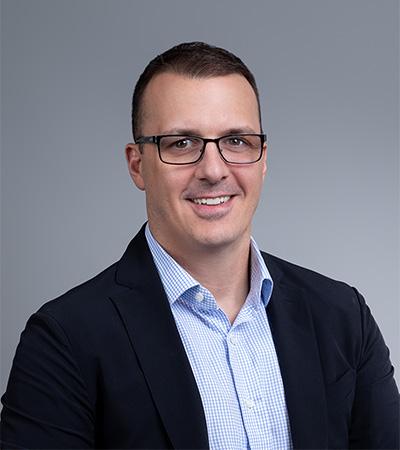
Hornung, ’04, honored as Alumni Master
25 Apr 2023
Adam Hornung, ’04, was presented as the Nebraska Law Alumni Master at the 2023 Nebraska Alumni Awards. Hornung is general counsel and chief compliance officer at Hillhouse Capital, one of the largest asset management firms in Asia. He has been with Hillhouse since its inception in 2012 and currently manages operational and global strategic initiatives while overseeing a team of more than 25 legal, compliance and tax attorneys around the globe.
Originally from Arnold, Neb., Hornung received his J.D. from the College of Law and previously served on the Lincoln City Council. Prior to joining Hillhouse and moving to Hong Kong, Hornung practiced at O’Melveny & Myers LLP in California.
Moving all around the world, Hornung has found that the adaptability he developed in law school continues to prove useful. Learning to work with different people in an unfamiliar environment is applicable both in the classroom and in the workplace.
“It helps you find commonalities in people,” he said. “You find out that people are very, very similar, regardless of where you are.”
Reflecting on his time at Nebraska Law, Hornung recognized the influence of Professor John Lenich in connecting him with the firm where he was hired post-graduation. He said the willingness of the faculty to go above and beyond to help students succeed sets the College apart.
“Professors here really do care quite a bit about you and are genuinely interested in your success as a person and as a lawyer and as someone who’s going to go out there and hopefully help the world,” he said.
In choosing a career path, Hornung said students should focus first on taking time to find what they’re passionate about. Figuring out how you can add value to the world and simultaneously feel fulfilled is imperative.
“The key is to find something that you’re willing to pour your heart into, and then put the effort in that it takes for you to become successful,” he said.
Although he credits some of his success to serendipity, Hornung said he hopes his conversations with current law students showed them that there are many opportunities to thrive.
“A lot of things happen that you’re not totally in control of,” he said. “But hopefully they can draw a little bit of comfort that they’re already on the right path.”
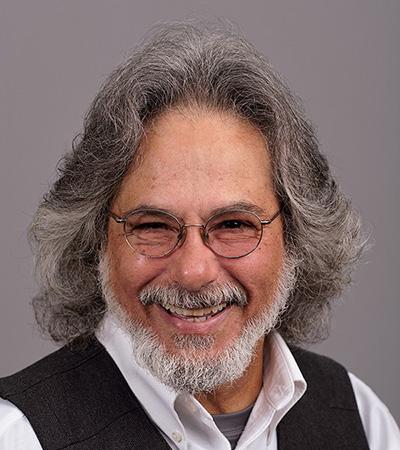
Soto, '84, receives Diversity Leadership Alumni Award
12 Apr 2023
Jose Soto, ’84, vice president for Access, Equity and Diversity at Southeast Community College (SCC), received the Diversity Leadership Alumni Award at the University of Nebraska-Lincoln’s Diversity, Equity and Inclusion Awards ceremony on April 10.
The award is designed for a UNL graduate who encompasses the principles of diversity, equity, inclusion, and social justice through their practices and principles. This could be through a profession, engagement with UNL, or civic engagement.
Interim Associate Dean for Diversity, Equity and Inclusion and Professor of the Law Library Stefanie Pearlman said Soto has been a fierce advocate in his role at SCC and on the Nebraska Supreme Court’s Access to Justice Commission.
“Jose is a strong voice on the Commission, encouraging us to constantly move forward with actions designed to make the courts more accessible to all Nebraskans,” she said.
Assistant Dean for Student Development Molly Brummond, ’03, said that Soto’s commitment to these principles permeates every aspect of his life. Soto is a founding member of the 2044 Board (now titled the Dean’s Advisory Board) at the College of Law, created to focus efforts on increasing the diversity of the college’s community and its approach to legal education.
“By lending his time and talent to efforts aimed at increasing access to justice, Jose provides thought leadership that results in Nebraskans of all backgrounds having access to our legal representation and resources,” she said.
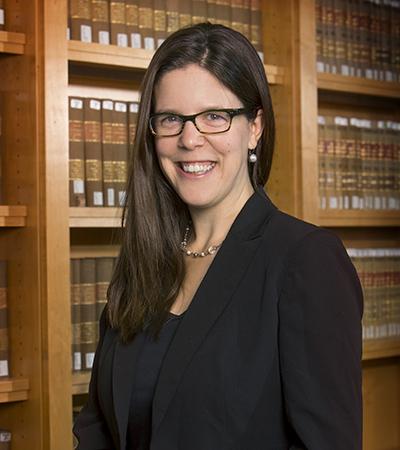
Shoemaker's article accepted by The University of Chicago Law Review
03 Apr 2023
Professor Jessica Shoemaker's article, "Re-Placing Property," has been accepted for publication by The University of Chicago Law Review. In the article, Shoemaker analyzes the relationship between property and placemaking through a series of both rural and urban case studies. She ultimately proposes a new framework for evaluating claims of place-based attachment in property law. This work has important implications for a range of real-world issues, including how the law may respond to increasing absentee investment in farmland and the fact that many more Americans are finding homeownership out of reach.
"I wanted to write an article synthesizing everything I've learned about property & placemaking, with stories about my daughters, my grandparents, and the sandhill cranes in Nebraska," Shoemaker said.
Read the abstract below:
This article analyzes the complex relationship between property and placemaking. Although zoning is regularly understood as the primary legal tool for regulating human environments, more fundamental land tenure choices also shape our collective relations. For example, the abstract and highly divisible nature of modern property estates drives many of the massive social and ecological changes we are seeing in real-time: growing institutional and foreign investment in American farmland (as rural landscapes depopulate and agriculture gets increasingly industrialized) and private equity’s rising appetite for single-family housing (as America’s glaring wealth gap continues to expand). Property law’s ongoing calibration of other property rights, such as the contours of an owner’s right to exclude, also create a cascade of real-world consequences, including how we register and accommodate (or not) the longstanding land relations of groups, cultures, and communities that are not (or no longer) recognized as legal owners and how we accommodate the access demands of individuals not otherwise born into hereditary wealth or land ownership.
Weaving together both rural and urban case studies, this article makes several important contributions about the centrality of property’s placemaking function. First, the article demonstrates how core property designs actively shape people-place relations, from early homesteading designs to ongoing refinements of specific property rights and responsibilities. Second, the article unearths the myriad ways that ideas about place and place attachment have been used across a range of land conflicts, with results that prioritize some connections while ignoring or rejecting others, often in unequal, inconsistent, and opaque ways. Finally, drawing from a series of examples—from Indigenous pipeline protestors to the absent and now-urban heirs of family farms and the emergence of new build-to-rent housing divisions—the article introduces a new taxonomy to evaluate the relative protection to afford various place and place-attachment claims.
This new framework separates the individual, collective, and ecological benefits of positive place relations from the risks of either too-much attachment (as in the case of hereditary land dynasties or property-based social castes) or land ownership without any attachment at all (as in the reimagination of land as an asset class for commodification and capture). This clear focus on placemaking puts property at the center of core social, economic, and climate challenges. It also offers novel solutions and entry-points to some of property’s perennial problems, including pervasive distributional inequities, while providing new language and a fresh lens for reimagining more just and sustainable property relations for our rapidly changing world.
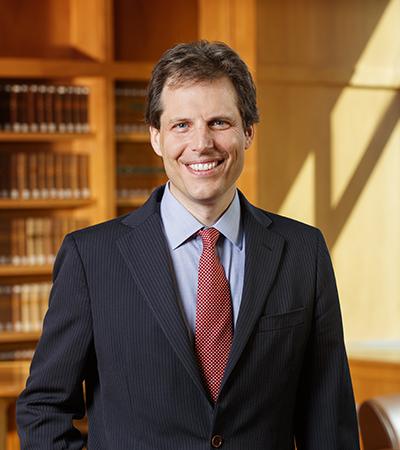
Berger's article accepted by Administrative Law Review
03 Apr 2023
Professor Eric Berger's article, "Constitutional Conceits in Statutory Interpretation," has been accepted for publication by the Administrative Law Review.
Read the abstract below:
For all its talk about textualism, the Roberts Court has a recent habit of ignoring statutory texts in especially important cases. In NFIB v. DoL, West Virginia v. EPA, and Brnovich v. DNC, the Supreme Court steered around broad statutory language to limit important federal legislation. In each case, the Court brushed aside inconvenient statutory texts, focusing instead on background constitutional concerns. Significantly, though, the policies at issue were not unconstitutional under current doctrine. The challenged policies, then, did not violate constitutional law so much as the conservative Justices’ constitutional sensibilities.
Admittedly, the Court has long interpreted statutes in light of constitutional anxieties, employing a variety of Constitution-based canons of statutory interpretation. The cases examined here, however, departed from those canons. NFIB and West Virginia ostensibly relied on the major-questions doctrine but transformed it from a modest interpretive aid into a reincarnation of the non-delegation doctrine. Brnovich did not even bother to invoke any of the constitutional canons, though amorphous federalism principles drove that decision.
While the Constitution-based canons of statutory interpretation have always afforded courts substantial discretion, these recent cases go much further. Rather than using constitutional canons to resolve statutory ambiguities, these decisions swept aside clear statutory language to advance the Justices’ constitutional conceits—that is, to further inchoate libertarian values inconsistent with contemporary constitutional law. Collectively, these cases paint an unflattering portrait of a Court willing to navigate around statutory text, constitutional doctrine, and longstanding interpretive canons to reach its desired outcomes.
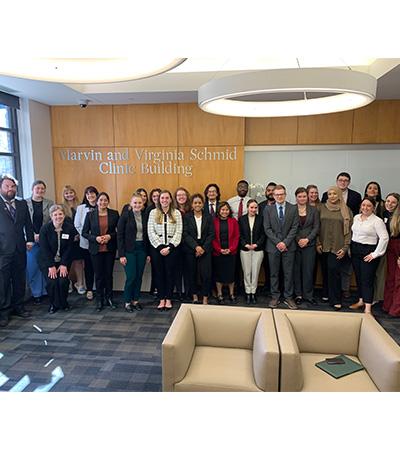
Naturalization Clinic volunteers provide assistance to community members
03 Apr 2023
Students in the Immigration Clinic at the College of Law held a Naturalization Clinic on Saturday, April 1 in the Schmid Clinic Building. The Naturalization Clinic has been run by students in the Immigration Clinic each spring since 2020. The purpose of the Naturalization Clinic is to help community members who are eligible to become United States citizens fill out the paperwork they will need to submit their applications to United States Citizenship and Immigration Services (USCIS). This year, students helped eight community members complete their naturalization applications.
The Naturalization Clinic was organized and run by the Immigration Clinic team of Jordan Mason and Dylan Severino, who recruited and trained volunteers, publicized the Naturalization Clinic in the community, ordered food and drinks, and otherwise served as organizers-in-chief of the Clinic.
Students volunteering for the Clinic arrived at 8:00 a.m. to receive instructions and packets with information on the community members whom they were helping. Those community members were served in two, two-hour shifts: one beginning at 9:00 a.m. and one beginning at 12:00 p.m. The Clinic ended at 2:30 p.m., concluding a very full day for those in attendance.
In addition to Mason and Severino, Immigration Clinic students participating in the Naturalization Clinic included Ainoa Chacon de Anzola, Shana Dregenberg, Veronica Parish, Christopher Schmidt, Kelly Shanahan, and Nicole Tracey. Immigration Clinic students provided support and advice for non-Immigration Clinic student volunteers, conducted background checks on applicants, and otherwise provided major support for the day’s operations.
Twenty-one law students volunteered to help with the Clinic. They met with clients, helped them fill out their paperwork, and gave them packets containing the next steps involved in submitting their naturalization applications. Those students volunteering were Fatima Al-Haidari, Jennifer Craven, Lionel Dalmeida, Anureet Dhillon, Mason Ellis, Rachel Espinosa, Courtney Fuller, Aurora Garcia, Jose Jaimes, Cassandra Kostal, Emma Lentsch, Elliott Lund, Dania Ontiveros, Abbey Penton, Jordyn Piper, Erin Rose Reales, Karsen Sims, Rebecca Stading, Olivia Steffensen, Erik Strickland, and Indy Talken.
Jodi Garrelts, a 2015 graduate of the College of Law, Immigration Clinic alum, and attorney at the Immigrant Legal Center in Lincoln, also volunteered to help review paperwork before it was finalized, printed and given to participants.
The Immigration Clinic wishes to thank Garrelts and all of the students who volunteered for the Naturalization Clinic. And to those community members whom they helped, best of luck as you pursue U.S. citizenship!
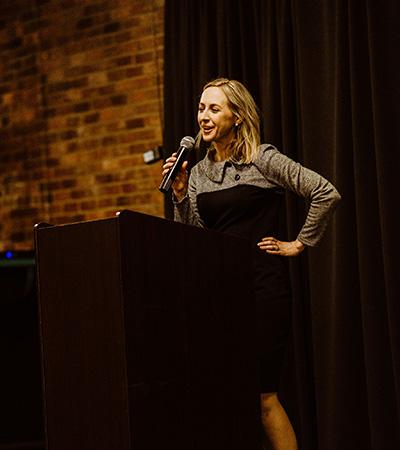
Women's Law Caucus raises $13,000 at Dean Anna Shavers Memorial Auction
20 Mar 2023
The Nebraska Law Women's Law Caucus held its annual charity auction on March 4, recently renamed in honor of Assistant Dean of Diversity and Inclusion Anna Williams Shavers. The auction brought in $13,214 benefiting Voices of Hope, the Friendship Home, the Nebraska Public Interest Law Fund, and the Anna Shavers Scholarship Fund.
The event featured speakers Angie Hilsabeck, Director of Strategic Partnerships at the Friendship Home; Natalie Roberts-Day, Executive Director at Voices of Hope; Kala Mueller, Director of Public Interest Programs at the College of Law; and 3L Miranda Cannon, Women's Law Caucus President. Law student Steffany Lien, the University of Nebraska Feature Twirler, performed a baton routine in between speakers.
A silent auction offered goods from local businesses, while a live auction featured items and experiences from faculty members and firms. Prizes included brunch with Assistant Dean for Student Development Molly Brummond, a round of golf with Professor James Tierney and a grill out with the law library staff. Nic Zito, brother of 2L Izzy Zito (Women's Law Caucus 2L Treasurer), served as the auctioneer.
The Women's Law Caucus thanks the following underwriters:
Caswell, Panko & Westerhold, LLC
Cline Williams Wright Johnson & Oldfather
Fraser Stryker PC LLO
Woods Aitken LLP
ACLU of Nebraska
Berry Law
Jantzen Law Office
Koley Jessen PC LLO
Mattson Ricketts
Suiter Swantz IP
Mary Kay Hansen Law &
Mediation PC LLO
Bruning Law Group
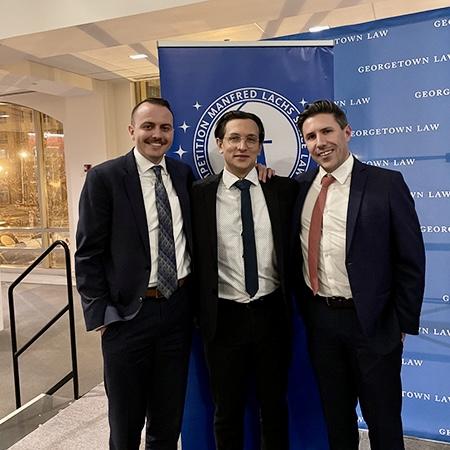
Nebraska Law students place in semi-finals at Space Law Moot Court Competition
20 Mar 2023
Nebraska Law students Matias Cava ’24, Grant Jones, ’24, and Jon Natvig, ’23, competed in the 2023 Manfred Lachs Space Law Moot Court Competition. This year’s competition was the first to take place in-person since 2019 in Washington D.C. After two preliminary rounds, the team advanced from the first day of the competition with the top score in their division. The team then competed in quarter finals and semi-finals, narrowly missing the final round.
This year’s team was coached by Associate Director Lauren Bydalek and Professor Frans von der Dunk. The competition was based on a hypothetical space law dispute before the International Court of Justice, dealing with issues of liability, violations of the outer space treaty, and other UN treaties. Participating teams submitted formal written arguments for both the Applicant and Respondent States before competing in oral arguments at Georgetown Law Center.

Blankley, co-authors present to Interagency Alternative Dispute Resolution Working Group
15 Mar 2023
Professor Kristen Blankley, along with co-authors Professor Kathleen Claussen of Georgetown Law and mediator Judith Starr, presented to the federal Interagency Alternative Dispute Resolution Working Group on Wednesday, March 15.
The presentation featured their work for the Administrative Conference of the United States (ACUS) on Alternative Dispute Resolution (ADR) in Agency Administrative Programs. This research group produced a report for ACUS in 2021 regarding ADR opportunities for public-facing agency programs. The report is the culmination of an 18-month study of agency practices in the area of ADR, as well as recommendations for agencies looking to create or improve ADR programs.
Professor Blankley is the Henry M. Grether, Jr., Professor of Law. She teaches and researches in the areas of alternative dispute resolution, legal ethics, and at the intersection of ethics and dispute resolution.
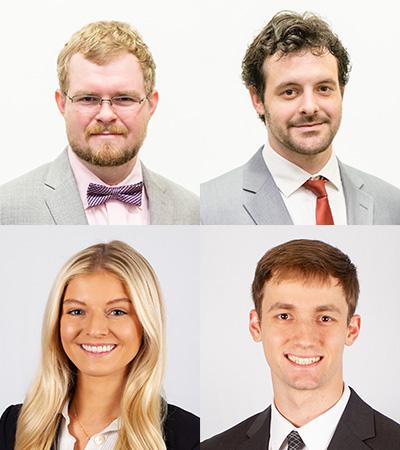
2L Team places second at Regional Patent Application Drafting Competition
15 Mar 2023
Teams from Nebraska Law, composed of 2L and 3L students, competed in the Rocky Mountain Regional of the United States Patent and Trademark Office’s (USPTO) National Patent Application Drafting Competition on Sunday, March 4. The 2L team of Tom Simonson, Luke Lacy, Jessie Sadlon, and Luke Zoller (pictured to the right), advanced to finals and finished in 2nd place out of 9 teams.
The competition challenges law students to develop patent prosecution skills by applying legal principles to a hypothetical invention scenario. Teams were required to analyze an invention statement, perform a patentability search, draft a set of patent claims and a patent specification, and then present and defend the application to a set of judges made up of patent experts.
The 3L team was made up of DeLaney Brink, Brady Stuhmer, and Jinah Shin. The teams are coached by attorney Matt Poulsen, ’10.
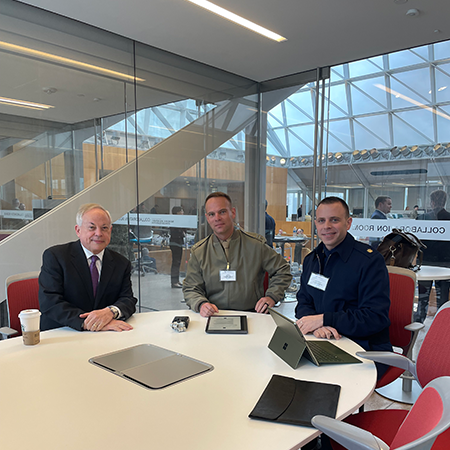
Beard Featured on "Quill and Sword" Podcast
10 Mar 2023
Nebraska Space, Cyber, and Telecommunications Law Director Jack Beard was featured on the “Quill and Sword” podcast. While attending the USSPACECOM Legal Conference, Beard spoke with Capt. Joel Hood and LCDR Tyler Stutin, Center for Law and Military Operations, on the current state of space law. In the episode, Beard talks about the misconceptions of space law, the difference between cyber and space law, and the concept of due regard. They also discuss the Woomera Manual.
To listen, visit: https://podcasts.apple.com/us/podcast/the-quill-sword-ep-3-usspacecom-legal-conference-part-1/id1654759342?i=1000603026068.
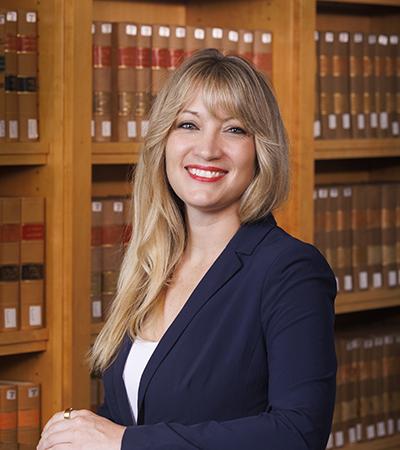
Jefferis' article accepted by Fordham Law Review
08 Mar 2023
Professor Danielle Jefferis' article,"Carceral Deference: Courts and Their Pro-Prison Propensities," has been accepted for publication by Fordham Law Review. In the article, Jefferis discusses judicial deference to prison officials and contextualizes the origins of carceral deference.
Read the abstract below:
Judicial deference to non-judicial state actors, as a general matter, is ubiquitous. But “carceral deference”—judicial deference to prison officials on issues concerning the legality of prison conditions—has received far less attention in legal literature, and the focus has been almost entirely on its jurisprudential legitimacy. This Article adds to the literature by contextualizing carceral deference historically, politically, and culturally. Drawing on primary and secondary historical sources, as well as trial and other court documents, this Article is an important step to bringing the origins of carceral deference out of the shadows, revealing a story of institutional wrestling for control and unbridled dominance that has not, until now, been fully told.
That full telling is more important now than ever, as society grapples with the scope, scale, and racist impacts of American punishment. Carceral deference plays an enormous role in the constitutional ordering of state power, as well as civil law’s regulation of punishment, a force that is often neglected within the criminal law paradigm. Moreover, the Supreme Court has demonstrated a recent skepticism of judicial deference in other areas of the law, suggesting an era in which traditional notions of deference are up for reconsideration. Understanding how the foremost judicial norm in the prison law space developed gives us a foundation from which to better examine and critique the distribution of power among prisons, courts, and incarcerated people and the propriety of deference to prison officials; further informs our understanding of the systemic and structural flaws of the criminal punishment system; and adds to a growing body of literature analyzing the role of expertise in constitutional analyses across dimensions, from qualified immunity to the administrative state.
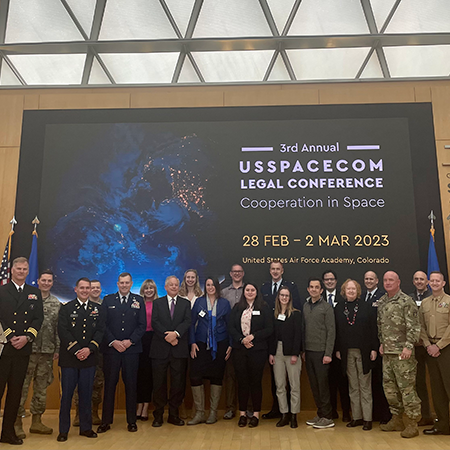
Nebraska Students and Alumni Attend USSPACECOM Legal Conference
08 Mar 2023
Nebraska Law students, program directors, and alumni were well-represented at the annual USSPACECOM Legal Conference, co-sponsored by the Law, Technology, and Warfare Research Cell at the U.S. Air Force Academy and United States Space Command (USSPACECOM). This year, the conference was focused on Cooperation in Space, featuring panels on commercial and military partnerships, space operations and national security in the space domain, space traffic managment, and operational law. Three students, Amelia Ruffolo, Indie Talken, and Emma Schlenker received a travel award to attend the conference. Many other Nebraska JD and LLM Alumni were also in attendance at the US Air Force Academy in Colorado Springs.
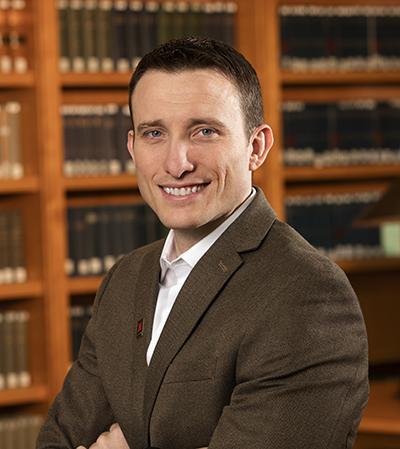
Prof. Sullivan and volunteers named Free Legal Answers 2022 Pro Bono Leaders
27 Feb 2023
Professor Ryan Sullivan and volunteers from Nebraska Law were recently named American Bar Association Free Legal Answers 2022 Pro Bono Leaders. This annual recognition is presented to individual attorneys, law firms, corporate law departments, and other organizations that have provided extraordinary pro bono services through this pro bono legal advice portal. Professor Sullivan and other faculty volunteers answered a total of 113 civil legal questions last year.
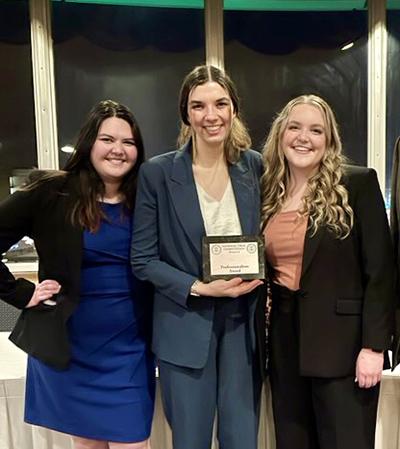
National Trial Team advances to national competition
24 Feb 2023
Two Nebraska Law National Trial Teams recently competed in the regional competition in Sioux Falls, S.D. There were 19 teams representing 10 law schools.
Attorney members of the two teams:
- Grace Deist, Lauren Olsen, and Julia Pomerenke.
- Laura Bolton, Bree Hurt, and Olivia Thiel.
Witness members of the team:
- Adam Barrett, Kenessa Copeland, Braden Dvorak, and Claire Shada.
Pomerenke received the Best Opening Statement award and the team of Bolton, Hurt, and Thiel won the Most Professional Team award. Both Nebraska teams advanced to the final round of the competition. The team of Bolton, Hurt, and Thiel won and will be competing in the national competition in San Antonio in late March.
The team is coached by Professor Steven Schmidt and Adjunct Professor Carolyn Bosn as assistant coach.
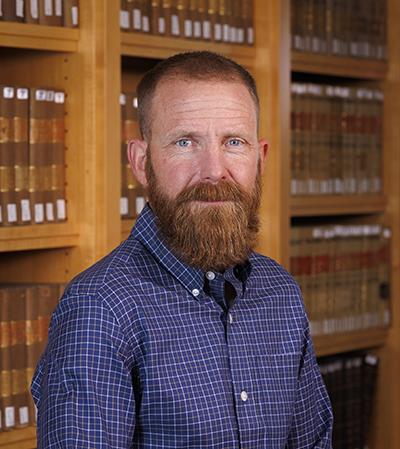
Schutz's article published in Nebraska Law Review Bulletin
24 Feb 2023
Professor Anthony Schutz's article, "The Uncertain Fate of LB 753 Under Article VII, Section 11 of the Nebraska Constitution's No-Aid Provision" was recently published in the Nebraska Law Review Bulletin.
In the article, Schutz examines Legislative Bill 753 (L.B. 753), which would provide a non-refundable, 5-year carry-over tax credit for donations to qualifying scholarship-providing organizations. The bill is currently being considered by the Nebraska Legislature. Schutz addresses whether such a program violates article VII, section 11 of the Nebraska Constitution.
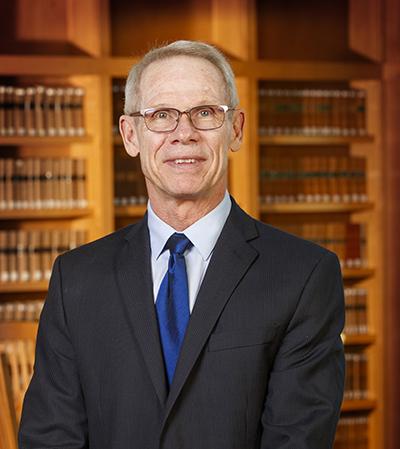
Centner's article published by University of Cincinnati Law Review
24 Feb 2023
Professor Terence Center's article, "Invasions of Dicamba Particles: Holding States Accountable for Taking Offsite Property Owners’ Right to Exclude,” was recently published by the University of Cincinnati Law Review. In the article, Centner examines the registration of dicamba herbicides by state governments.
Read the summary below:
In 2017, special formulations of dicamba herbicides were marketed for post-emergent use on genetically engineered soybeans and cotton. The use of these formulations was accompanied by considerable herbicide drift and volatilization that harmed millions of acres of nearby crops. For each growing season during 2018-2021, unacceptable offsite injuries were reported in the major soybean and cotton-producing states. Given the reported injuries, state agencies issuing new registrations for dicamba products in 2018 and 2020 knew offsite spray drift and volatilization would carry dicamba particles onto nearby properties. Despite their knowledge, states issued permits for the use of dicamba products that granted applicators easements over nearby properties. These easements involved entries of dicamba particles that damaged vegetation. The approval of dicamba registrations by state governments may be viewed as appropriations of neighbors’ right to exclude. The registrations grant dicamba applicators easements that allow dicamba particles to enter non-target properties and cause property damage. These intrusions suggest that the state-approved registrations are appropriating property interests. Depositions of dicamba particles onto offsite properties damaging plants effect per se physical takings. States should compensate injured property owners for losses from dicamba spray applications.
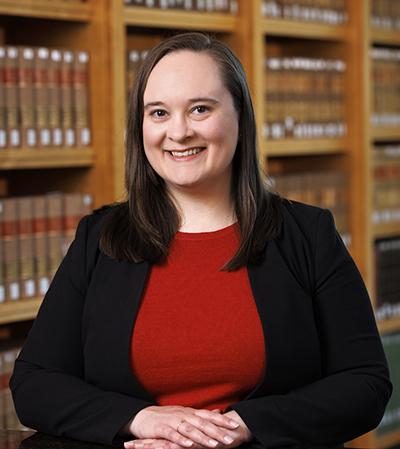
Fidler publishes chapter in Cyberspace & Instability
24 Feb 2023
Professor Mailyn Fidler published a chapter in a new book, Cyberspace & Instability. The book investigates the contested notion of "stability" in cyberspace.
Professor Fidler's chapter, "Infrastructure, Law, and Cyberstability: An African Case Study" looks at the idea from an African perspective, as well as the interesting connections between stability in infrastructure and stability in the law. The book is available open-access through Edinburgh University Press. https://edinburghuniversitypress.com/book-cyberspace-and-instability.html.
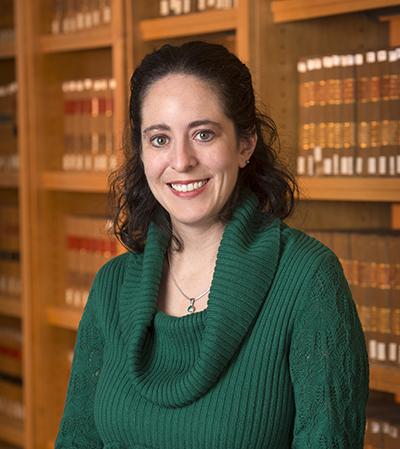
Blankley's article accepted by University of Miami Law Review
24 Feb 2023
Professor Kristen Blankley's article, "A Muddy Mess - the Supreme Court's Jurisprudence on Jurisdiction for Arbitration Matters" has been accepted for publication by the University of Miami Law Review.
The article discusses recent trends in federal court jurisdiction to hear arbitration matters and shows how a pair of Supreme Court cases have created an unduly complex system for parties to enforce rights under arbitration agreements. Blankley suggests a legislative change to simplify all of these matters for the courts and parties alike.
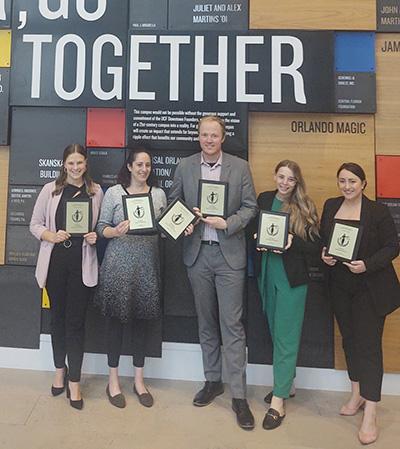
Mediation Team takes first at invitational tournament
23 Feb 2023
The University of Nebraska College of Law Mediation Competition Team traveled to the University of Central Florida on February 9 to take place in an invitational tournament for law students, international law students, and undergraduates.
Nebraska Law dominated the tournament with the following team awards:
1st Place - Mediator Team (Steve Lydick, Kelly Shanahan, Veronica Parish)
2nd Place - Attorney/Client Team (Steve Lydick, Kelly Shanahan, Veronica Parish)
The students also received numerous individual awards:
1st Place - Attorney/Client Individual Award - Steve Lydick & Veronica Parish
3rd Place - Attorney/Client Individual Award - Ashly Helfrich (as an alternate on a team put together hours before the competition!)
4th Place - Individual Mediator - Veronica Parish
5th Place - Individual Mediator - Kelly Shanahan
The team is coached by Professor Kristen Blankley.